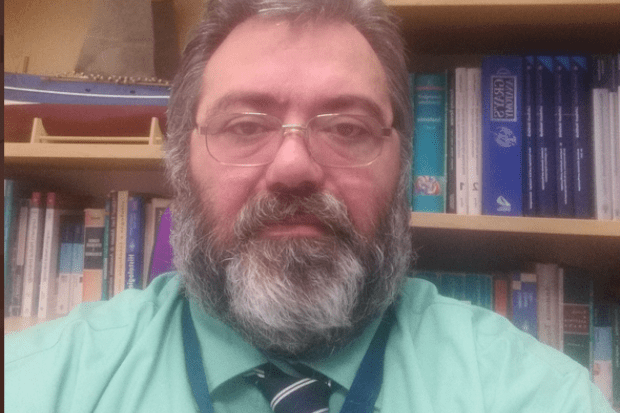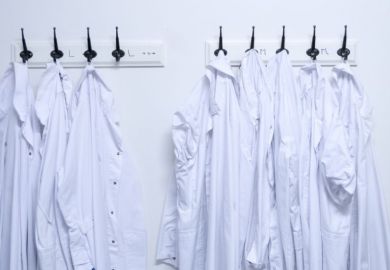An Italian medical professor has become the latest academic to quit UK academia because of Brexit.
Fabio Quondamatteo, professor of anatomy at the University of Glasgow, told colleagues on 18 November that he had taken the “difficult and painful decision” to resign his post, citing the “uncertainties in planning a long term life for [his] Italian family in the UK” caused by Brexit.
Writing on Twitter, Professor Quondamatteo said he was taking a post in Dublin at the Royal College of Surgeons in Ireland’s department of anatomy and regenerative medicine.
He also acknowledged the “great and extensive support” he had received from Glasgow’s senior leadership and praised the “fantastic contribution of all my staff” in his message.
Speaking to Times Higher Education, Professor Quondamatteo said his institution had been “extremely supportive and very European” since the 2016 referendum on European Union membership. However, he explained, the impending loss of freedom of movement within the EU, particularly for his family, had been a big factor in his decision to leave.
“It is about…choosing whether one wishes [to be] in a place that suddenly bears uncertainties and an environment which is unnecessarily more awkward for making longer term family plans,” he said.
“I don’t want to debate on the usefulness of Brexit to some people, [but] to me it only makes [it less desirable] to live in the UK in the long term due to the uncertainty of how difficult life may be because of it.”
Despite Professor Quondamatteo’s decision to leave for the Republic of Ireland – which began an initiative in 2016 to “attract world-leading researchers in the context of Brexit” – there is little evidence to suggest that the widely predicted exodus of European staff has occurred. Although many institutions have anecdotal evidence of EU staff citing Brexit for their departures, just 500 staff from other EU countries moved abroad in the year after the referendum, compared with 340 in the previous 12 months, newly published figures suggest.
According to the Higher Education Statistics Agency, there were 37,255 academics from other EU countries at UK universities in 2017-18, up from 35,920 the year before and representing a rising share (17.6 per cent) of all academic staff.
Professor Quondamatteo, who has authored or co-authored more than 70 peer-reviewed research papers, said he did not know if other European academics would leave the UK if Brexit is finalised next year.
“These are personal decisions that people make based on what they feel [is] good for them and based on the alternatives that they have in life,” he said, adding that he was “lucky to receive an offer from…an excellent institution in a wonderful country”.
“Every situation is different and needs to be considered as unique. I love being here,” he said.




